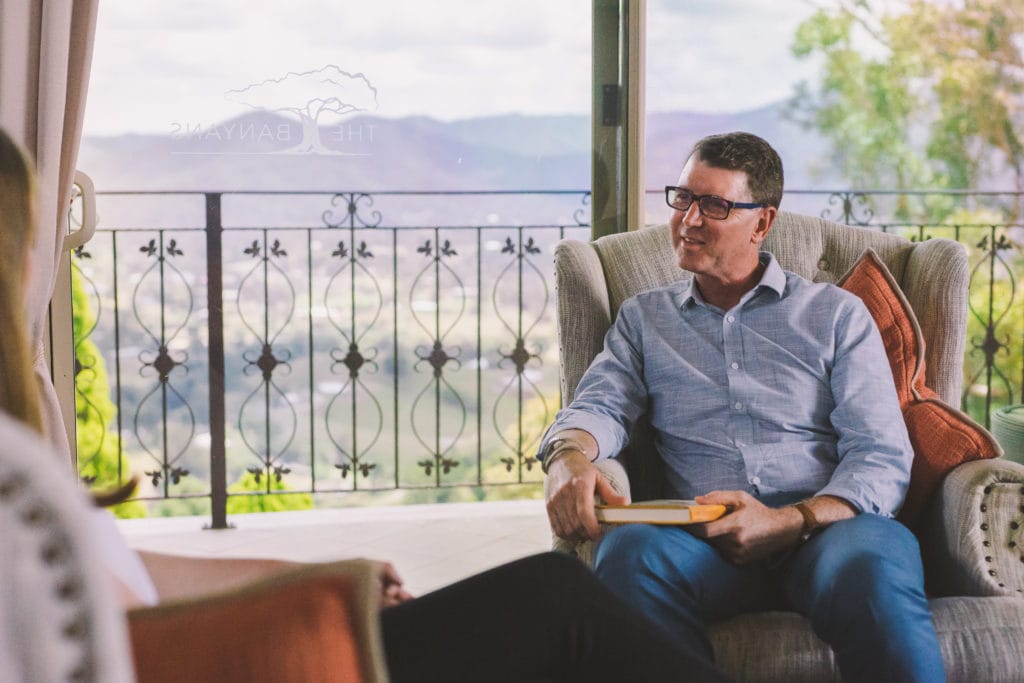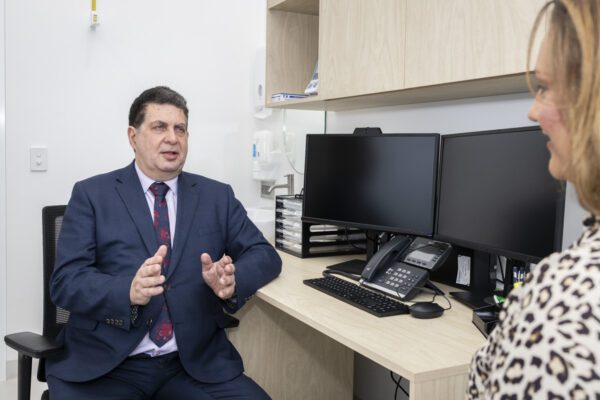Managing anxiety can be a challenging part of your treatment and recovery from an anxiety disorder. However, with adequate support and education, you can live a fulfilling life with your anxiety under control.
This article may be helpful for you if you…
- Are looking for ways to manage anxiety;
- Think you may be experiencing an anxiety disorder;
- Want to understand anxiety better and the strategies used to manage anxiety;
- Would like to better support a loved one who is experiencing anxiety.
Managing anxiety is necessary for a healthy life
Anxiety is a natural, human response to stress or danger. The term “anxiety” refers to a collection of emotions and physical responses that typically encompass fear, nervousness and stress.
For most people, these feelings and bodily responses feedback from a specific stressor, and pass when the stressor has been relieved. For the 1 in 3 Australian’s who will experience an anxiety disorder, this may not be the case.
Relief found in managing anxiety
Anxiety disorders can persist for months and years, with some people experiencing the disorder for majority of their life. However, with appropriate treatment, support and education, the signs of anxiety can be managed and relieved. This allows you to continue engaging with life in a positive way.
Learn skills to manage anxiety with private therapy
The most popular approach to managing anxiety is through professional treatment and emotional therapies.
A qualified psychologist is highly trained in evaluating and providing clients with appropriate strategies for anxiety management. The therapist will help you identify your emotional and physical stressors, and suggest strategies to build skills that enable you to manage anxiety in your day to day life.

Next steps: If you think that you would benefit from seeing a psychologist about your anxiety, it may be worth seeking a Mental Health Plan from your local general practitioner. You can also find a psychologist in your area by visiting healthdirect.gov.au.

Do the heavy lifting: Exercise as a management tool
Research supports the ongoing benefits of exercise on our mental health. More recently, focus has been on the specific benefits of exercise as a tool to manage anxiety.
Exercise has the ability to counter many of the common symptoms of an anxiety disorder, particularly fatigue, lack of concentration, “fidgeting” and insomnia. It also increases engagement in healthy anxiety management strategies, like positive distraction, low-energy social interaction, mastery and self-care.
Related: Exercise alleviates symptoms of mental health conditions
When feeling anxious, it can be difficult to find the courage to hit the gym. The good news is that research suggests a ten-minute walk in nature can be just as beneficial for your mental health as a 45 minute workout.

Yoga praised for relieving effect on anxiety
Similarly, yoga has been recognised for its positive effects on anxiety symptoms and stress relief. Not only does yoga help manage anxiety through the effects of physical exercise (like the release of endorphins), research suggests the relaxing environment and intentional focus on the body and breath is also beneficial.
Related: Yoga’s place in your recovery journey
Moreover, yoga is becoming increasingly accessible for people with anxiety conditions, as online classes and local yoga studios continue to thrive. The Banyans recommends this 20 minute practice with online yoga instructor Adriene Louise.
Next steps: Exercise is a helpful way to begin managing anxiety. Try to schedule at least 10 minutes of physical exercise each day – either alone, or with a supportive friend or family member. Walking, yoga and gym classes are all great ways to get started.

You feel what you eat: managing anxiety through diet and nutrition
According to research from Harvard University, there is a clear correlation between nutrition and mental health, especially anxiety. Nutritionists and dieticians recommend that people with anxiety:
- Avoid food and drinks that are high in sugar, caffeine, or alcohol;
- Eat a balanced diet of things they enjoy;
- Try to choose whole, unprocessed foods rather those that are pre-made or “fast food”;
- Eat something small rather than nothing at all.
Related: Food and Mood – how diet impacts mental health
Are there any foods that are particularly good for managing anxiety?
Foods rich in zinc, magnesium, and vitamin B have displayed anxiety relieving characteristics. Clinical Nutritionist Lisa Cutforth recommends individuals experiencing anxiety should try to include:
- Foods rich in antioxidants, like apples, plums, berries, and spices such as turmeric;
- Zinc: Whole grains, kale, legumes and nuts;
- Magnesium: fish, avocado, and dark leafy greens;
- Vitamin B: asparagus, meats and avocado.

Top tips for using your diet to manage anxiety: Although many people turn to alcohol for its anxiety-relieving characteristics, few realise that it does more harm than good. Substances like drugs and alcohol have an impact on your brain’s neurochemicals, especially serotonin (a happy hormone), which can worsen the symptoms of anxiety when the substance wears off.
Related: Alcohol, anxiety and Australian women
Taking a breather: Meditation and mindfulness in managing anxiety
According to Mindful, meditating with anxiety is not always easy. However, it is a powerful tool for managing anxiety that should not be overlooked. “Meditation can put us in touch with our stress and anxiety. It can help soften feelings of anxiousness, reduce stress, and calm a panic attack before it takes hold.”
Similarly, research backs the sentiment, with a 2015 study showing a clinically significant reduction in anxiety symptoms after practising meditation techniques.

What is meditation and mindfulness?
Mindful meditation involves bringing yourself into the present moment, through intentional focus on the breath and your surroundings. You give yourself an opportunity to identify the present, rather than dwelling on the past or worrying about the future.
There are many ways to meditate and exercise mindfulness. Guided mindfulness apps, podcasts or videos are popular, as are adult colouring books and mindful eating.
Next steps: If you are looking for a meditation or guided mindfulness activity for anxiety, there are some great resources online. The Banyans recommends guided meditations from Headspace, Calm or Mindful. There are also many available on Youtube, like the one below.
Psychiatrist-prescribed medication can help
For some people, they may benefit from medication prescribed by a Psychiatrist. Although it is important to learn healthy tools for managing anxiety and other mental health conditions, anxiety medications can help people be more receptive to other management strategies like therapy, exercise or mindfulness.
Related: The role of medical support in recovery
Next steps: It is important that the use of anxiety relieving medications are prescribed by a treating Psychiatrist. A Psychiatrist is a doctor that specialises in mental health conditions like anxiety disorders. If you think you may benefit from seeking the support of a Psychiatrist, book an appointment with your local general practitioner for a referral.

Behavioural relaxation – go get a massage!
Many therapists recommend self-care as a positive path towards managing anxiety. Creating time to relax, decompress and connect with ourselves in a healthy way is an effective tool to calm an anxious mind.
Stuck for ideas? Activities that you enjoy are able to provide an outlet for anxiety: you could try having a warm bath, getting a massage, writing poetry or listening to music.

Manage anxiety through reduced alcohol and drug use
Alcohol and recreational drugs have gained popularity for helping people “let their hair down” and relax. But once the temporary effects of these substances wear off, we may experience worsened fear and anxiety that is more difficult to manage.
Findings report a significant correlation between alcohol use and anxiety, with 20% of people experiencing alcohol dependence or addiction also showing signs of clinical anxiety disorder.

Recent studies have shown that prolonged or intensive alcohol or drug use can cause changes in the rewiring of the brain, making us more susceptible to anxiety disorders and its symptoms. Cutting back or eliminating alcohol and drug use can be an effective way of managing anxiety.
Related: Alcohol hijacks the brain
Next steps: Many people benefit from taking short periods of abstinence. Initiatives like FebFast, Dry July and OcSober are all great opportunities to reconsider your relationship with alcohol, and perhaps cut back for a period. This blog from The Banyans team also provides some great Sober Substitutes that can help you reduce your alcohol consumption.
However, there can great risk in significantly reducing our alcohol consumption, especially if we are going from a large dose to “cold-turkey”. If you are seeking to reduce your alcohol or drug use, make sure you speak to your general practitioner before making any dramatic changes.
Related: Addiction Specialist warns of dangers of Dry July

Are you having trouble managing anxiety?
When we feel like we cannot manage our anxiety, life can feel like an endless mouse-wheel. We may want to escape the endless pressures presented by our anxious thoughts, and feel hopeless, desperate and exhausted.
The Banyans understands just how hard it can be to implement the strategies suggested here. When you are struggling to manage your anxiety, you may need an intensive, therapeutic space to help rebuild your courage and confidence.
Our tailored programs for anxiety and co-occurring health conditions (like alcohol misuse or depression) will help you find your feet again, and live your life with resilience.
It’s time to get well. Contact The Banyans today.
The first step to regaining freedom from anxiety is to reach out for support. Our friendly team at The Banyans are ready to listen to your story, while helping you develop a plan for recovery at our luxury treatment residence.
The life you desire is on the other side of fear. Contact us today.







